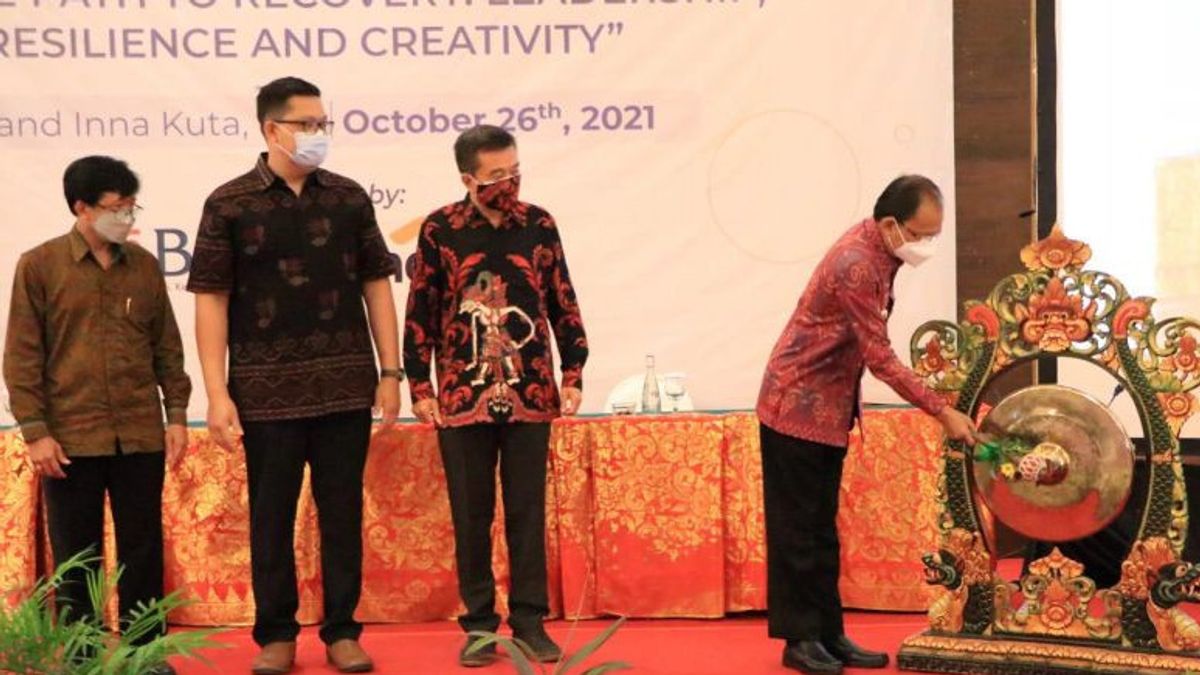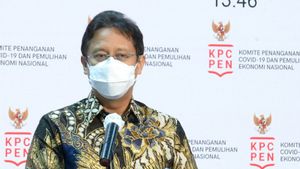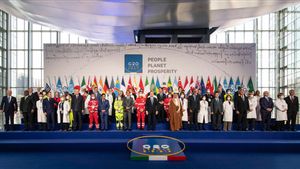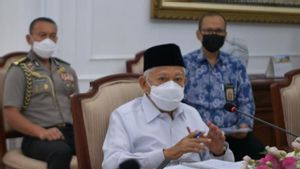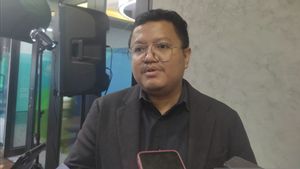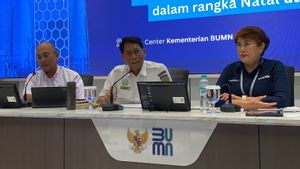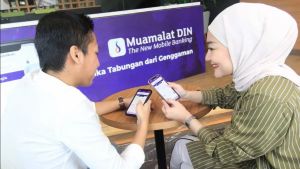BALI - Bali Governor Wayan Koster invites academics and practitioners to actively play a role in finding new strategic concepts and steps for economic recovery after the COVID-19 pandemic.
"This pandemic should not only be viewed with pessimism, but rather a momentum to find solutions related to the post-pandemic economic recovery," said Koster when opening the International Conference on Family Business and Entrepreneurship (ICFBE) in Kuta, Badung, as reported by Antara, Tuesday, November 1.
In the event that brings together academies and practitioners from various countries, according to him, in facing the impact of this pandemic, we are required to continue to find ways for recovery in various sectors.
In addition, strong and innovative leadership is also needed, coupled with the creativity of all components as well as a sincere and straight commitment.
"So it is appropriate that various topics related to economic recovery are discussed by academic speakers and foreign practitioners according to the themes raised. The pandemic has changed all aspects of life, economy, social and culture, moreover no one can say for sure when the pandemic will end," said Koster.
He hoped that the discussion of the conference participants, which was supported by President University and Dhyana Pura University, was able to present recommendations and results of scientific studies.
In addition, it presents new theories that can be implemented to deal with the post-pandemic world that has had such a huge impact on the economy.
"This is a momentum for academics to conceptualize a more resilient economy, because I think there are old theories that are no longer relevant after the pandemic," he said.
According to Koster, the pandemic has become a starting point, it is time for Bali to reorganize the economy to balance the structure and fundamentals of the Balinese economy, which returns to the superiority and resilience of local resources.
"So the Balinese economy must return to the natural, human and local cultural potential of Bali. Especially in the agricultural, marine, and forestry sectors and the Balinese branding folk handicraft industry. Then tourism will be used as a supporting sector or benefit that must side with Bali's local resources," he said.
SEE ALSO:
Meanwhile, President University Chancellor Prof Johny Oktavian Harianto said the conference with the theme "On the Path to Recovery: Leadership, Resilience, and Creativity" was held in a hybrid manner by presenting academics and foreign practitioners.
"This theme is relevant for efforts to revive the economy after being affected by the COVID-19 pandemic, where creativity is an important point," he said.
On this occasion, he said, as much as 80 percent of the Gross Domestic Product (GDP) of countries in the world comes from family companies. Then, of all companies in the world, 60 percent are still owned by families.
"They play an important role, because on average a family company is able to record revenues of US$1 billion (or around Rp14.5 trillion using the current exchange rate)," said Haryanto.
Then, in Indonesia, startup businesses are currently thriving. The rise of startup businesses today cannot be separated from the role of family companies.
Around 85% of startups get their first capital from a family business. Now, a number of startups have grown into Unicorns, and even Decacorns.
The presence of the startup is expected to inspire many companies, including family companies, to turn the crisis into a new business opportunity.
"Startup businessmen are like surfers who actually turn the crisis into a 'wave' to surf, namely by starting and even growing their business," said Jony Haryanto.
The English, Chinese, Japanese, Arabic, and French versions are automatically generated by the AI. So there may still be inaccuracies in translating, please always see Indonesian as our main language. (system supported by DigitalSiber.id)
